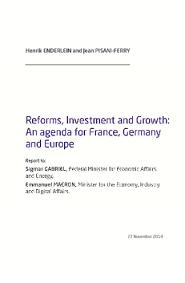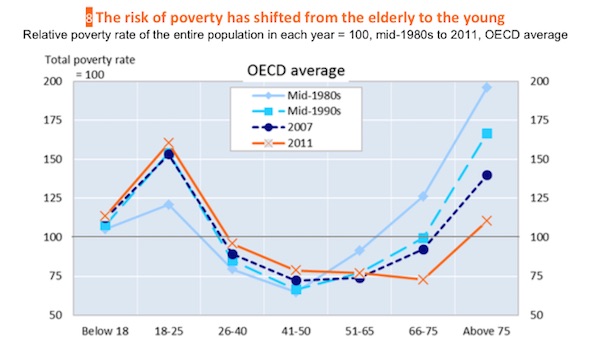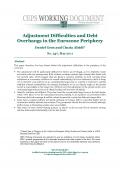Brzeski, C. (2015) “Calling the eurozone’s bluff?“, EU Observer Opinion, 14 Ιανουαρίου. Next week’s events have the clear potential to plant the seeds for another eurozone crisis. Not an immediate one with sharp market turmoil, but rather a creeping one: the sneaking and growing awareness that the eurozone is far from being perfect. On 22 January, the European Central Bank (ECB) will plant the first seed. It will be …Read More
Reforms, Investment and Growth: An Agenda for France, Germany and Europe
Enderlein, H. & Pisani-Ferry, J. (2014) “Reforms, Investment and Growth: An Agenda for France, Germany and Europe“, Report to Sigmar Gabriel (Federal Minister for Economic Affairs and Energy) and Emmanuel Macron (Minister for the Economy, Industry and Digital Affairs, 27 Νοεμβρίου. INTRODUCTION Europe is falling into a stagnation trap: growth is barely noticeable; current inflation is dangerously low; almost stagnant nominal income makes the weight of public and private …Read More
While Europe debates a placebo the disaster deepens
Mitchell, B. (2015) “While Europe debates a placebo the disaster deepens“, Bill Mitchell Blog: Modern Monetary Theory… Macroeconomic Reality, 12 Ιανουαρίου. The youth are our future. The future is for our youth. Poverty used to be a problem of the aged as they left employment and entered retirement. Shorter life spans than now meant it was a relatively short-lived but deplorable state for people to end in. All that …Read More
Reinsurance of National Unemployment Benefit Schemes
Beblavý, Μ., Gros, D. & Maselli, I. (2015) “Reinsurance of National Unemployment Benefit Schemes“, Social welfare policies, CEPS Working Documents, Centre for European Policy Studies, 08 Ιανουαρίου. This study is a contribution to the debate around the creation of an unemployment insurance scheme for the EU/euro area by proposing an alternative mechanism to the Europeanisation of national insurance schemes. The authors make the case for a reinsurance mechanism and show that …Read More
Democracy and the threat of revolution: New evidence
Aidt, S. T., Leon, G., Franck, R. & Jensen, S. P. (2015) “Democracy and the threat of revolution: New evidence“, VoxEU Organisation, 08 Ιανουαρίου. Some theories suggest that the threat of revolution plays a pivotal role in democratisation. This column provides new evidence in support of this hypothesis. The authors use democratic transitions from Europe in the 19th century, Africa at the turn at the 20th century, and the …Read More
The convergence dream 25 years on – half of the former communist countries did not converge to advanced EU countries from 1989-2014
Darvas, Ζ. (2015) “The convergence dream 25 years on – half of the former communist countries did not converge to advanced EU countries from 1989-2014“, Bruegel Institute, 06 Ιανουαρίου. The 25th anniversary of the fall of the Berlin wall was widely celebrated – rightly so. The fall of communism opened the way for democracy, personal freedoms, security, lawfulness, fairness and economic efficiency, among others. The transition also raised hopes that …Read More
Σταθερότητα και ευημερία στη Νομισματική Ένωση
Ντράγκι, Μάριο (2015) “Σταθερότητα και ευημερία στη Νομισματική Ένωση“, Αθηναϊκή Επιθεώρηση Βιβλίου, Τεύχος 58, 05 Ιανουαρίου. 1. Συχνά θεωρούμε λανθασμένα ότι η Ευρωπαϊκή Ένωση –και η ζώνη του ευρώ– είναι οικονομικές ενώσεις που δεν στηρίζονται σε πολιτική ένωση. Αυτό αντανακλά μια βαθιά παρανόηση για το τι σημαίνει οικονομική ένωση: είναι από τη φύση της πολιτική. Η Ενιαία Αγορά είναι η ίδια ένα πολιτικό κατασκεύασμα που δεν θα μπορούσε να …Read More
A common sense guide to EU reform
Corbett, R. (2014) “A common sense guide to EU reform“, Future Europe – Signposts from the European Elections, Europe’s World Journal, 09 Οκτωβρίου. It is hard to find a politician in any EU country these days who doesn’t call for ‘reform’. But as to what those reforms should be, opinions differ widely. And while the anti-system parties, wanting either to leave or destroy the Union are the loudest, it …Read More
Incomplete information and bargaining in the EU: An explanation of first-reading non-agreements
Vibeke Wøien Hansen (2014) “Incomplete information and bargaining in the EU: An explanation of first-reading non-agreements“, European Union Politics Journal, Δεκέμβριος. According to the logic of standard veto bargaining models with complete information, bargaining in the European Union should never reach the second reading of the ordinary legislative procedure (co-decision). Even so, non-agreement at the first reading occurs frequently in European Union decision making. How can this be explained? …Read More
Lacklustre investment in the Eurozone: The policy response
Buti, M. (2014) “Lacklustre investment in the Eurozone: The policy response“, VoxEU Organisation, 22 Δεκεμβρίου. Weak investment is a key macroeconomic problem in the Eurozone, and the new European Commission has proposed an ‘Investment Plan’ to complement existing policy initiatives. In this column, the Commission’s Chief Economist explains the key rationale behind the Investment Plan. Weak investment has been the main source of weakness in the Eurozone recovery (European …Read More








